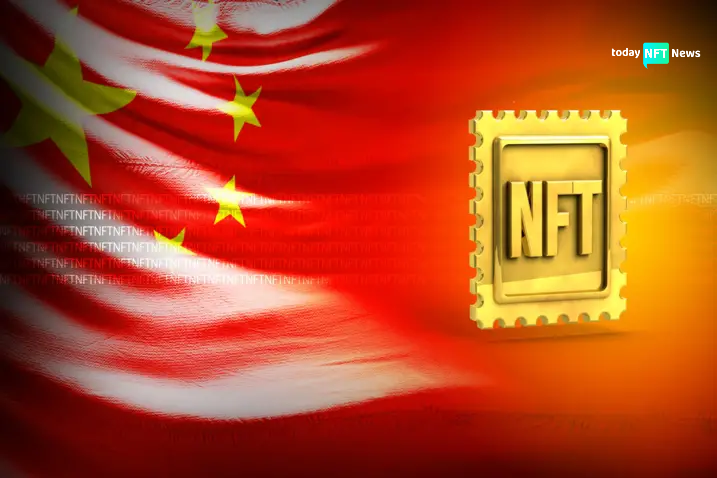
SNEAK PEEK
- China criminalizes the theft of digital collections, including NFTs.
- Digital collections are classified as both data and virtual property.
- Illegal access to computer systems is part of digital theft in China.
China has recently announced a significant legal stance against the theft of digital collections, including nonfungible tokens (NFTs). According to a statement released on November 10, individuals involved in such activities will face theft charges. The Chinese government’s declaration clarifies the legal status of digital collections, categorizing them as data and virtual property, a perspective that aligns with the concept of “co-offending.”
The government emphasizes that stealing a digital collection is not just a breach of ownership but also involves illegal access to computer systems. This dual violation, encompassing both property law and computer information system data protection, underlines the seriousness with which China views the theft of digital assets. This approach classifies digital collections, notably NFTs, as “network virtual property,” recognizing their intrinsic value in property law.
Interestingly, NFTs, known for their unique and tamper-proof nature through blockchain technology, are highlighted in this context. Despite China’s stringent stance on crypto-related activities, this move acknowledges the growing significance of NFTs, which are increasingly seen as valuable assets due to their unique characteristics.
Moreover, China’s approach to NFTs is evolving. While the country has yet to open a secondary market for digital collections, consumers can engage in transactions through trading platforms. These platforms facilitate various operations, including purchasing, collecting, transferring, and destroying digital assets, thereby granting consumers exclusive possession and control over these virtual properties.
Additionally, recent developments indicate a growing interest in NFTs within China. Alibaba’s Xianyu, a peer-to-peer marketplace, recently lifted its censorship on search terms related to NFTs and digital assets. This move, reported on October 25, suggests a softening attitude towards the digital asset market. Further emphasizing this trend, China Daily, a government-owned English-language newspaper, announced plans on October 6 to create its own NFT platform. The newspaper intends to invest 2.813 million Chinese yuan (approximately $390,000) in this venture, indicating the government’s increasing engagement with digital assets.
- SEO Powered Content & PR Distribution. Get Amplified Today.
- PlatoData.Network Vertical Generative Ai. Empower Yourself. Access Here.
- PlatoAiStream. Web3 Intelligence. Knowledge Amplified. Access Here.
- PlatoESG. Carbon, CleanTech, Energy, Environment, Solar, Waste Management. Access Here.
- PlatoHealth. Biotech and Clinical Trials Intelligence. Access Here.
- Source: https://www.todaynftnews.com/nfts-classified-as-data-and-virtual-property-in-china/
- :has
- :is
- :not
- 000
- 10
- 25
- a
- access
- According
- activities
- against
- Aligns
- also
- and
- announced
- approach
- approximately
- ARE
- AS
- asset
- Assets
- attitude
- blockchain
- both
- breach
- but
- CAN
- categorizing
- Censorship
- characteristics
- charges
- China
- Chinas
- chinese
- Chinese Yuan
- classified
- Collecting
- collection
- collections
- computer
- concept
- Consumers
- context
- control
- country
- create
- daily
- data
- data protection
- Despite
- developments
- digital
- Digital Asset
- Digital Assets
- due
- emphasizes
- emphasizing
- encompassing
- engage
- engagement
- evolving
- Exclusive
- external
- Face
- facilitate
- For
- further
- Government
- granting
- Growing
- growing interest
- Highlighted
- HTTPS
- Illegal
- in
- Including
- increasing
- increasingly
- indicate
- indicating
- individuals
- information
- intends
- interest
- internal
- intrinsic
- Invest
- involved
- involves
- ITS
- just
- known
- Law
- Legal
- Lifted
- Market
- marketplace
- million
- move
- Nature
- NFT
- NFT platform
- NFTs
- notably
- November
- october
- October 6
- of
- on
- open
- Operations
- over
- own
- ownership
- part
- peer to peer
- perspective
- plans
- platform
- Platforms
- plato
- Plato AiStream
- Plato Data Intelligence
- PlatoAiCast
- PlatoData
- possession
- properties
- property
- protection
- purchasing
- recent
- recently
- recognizing
- related
- released
- Reported
- Search
- secondary
- Secondary Market
- seen
- significance
- significant
- stance
- Statement
- Status
- stringent
- such
- Suggests
- system
- Systems
- tamper-proof
- terms
- that
- The
- theft
- their
- Them
- thereby
- These
- this
- Through
- to
- Tokens
- towards
- Trading
- Trading Platforms
- Transactions
- Transferring
- Trend
- unique
- Valuable
- value
- various
- venture
- VIOLATION
- Virtual
- Virtual Property
- Web3
- which
- while
- will
- with
- within
- yet
- Yuan

